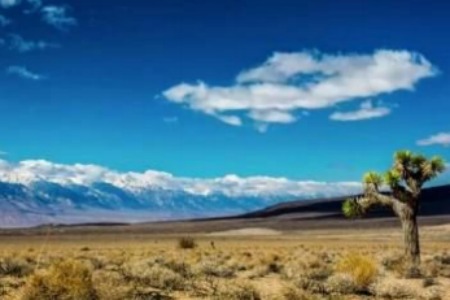Department: Environmental Studies
What Scholarship did you receive? The Hammett Award
What year are you? 2nd year Grad Student
Where do you call home? Joshua Tree, California
With all of the choices for college, what made UC Santa Cruz stand out?
My outstanding advisor, Greg Gilbert, and the interdisciplinary program in environmental studies.
What is your field of focus?
Environmental Studies
What do you hope to do once you graduate from UC Santa Cruz?
I will use my skills as a researcher, artist, and educator to affect positive change in the local and global community. I hope to do this through rigorous science that can be used to direct policy and management decisions, as well as by engaging the public through art and education outreach.
What is one memorable moment that stands out for you as a student here?
The moments I first found arbuscular mycorrhizal fungi in my Joshua tree roots, which was previously unknown for this species!
How will this scholarship impact your academics/research?
Support from the Hammett Foundation will enable me to make significant progress on my dissertation work and continue collaborating across disciplines. I can contribute to developing innovative solutions for managing biodiversity during rapid climate change, and increase public awareness in environmental sustainability through participation and engagement in arts research.
Tell us more about your research:
Climate change is influencing where species can live, causing migrations, and affectinghow species interact. For example, partner species may not migrate at similar rates, suggesting that biotic interactions between species could be particularly important. Toexamine how biotic interactions influence a migrating species success, I study the migration of Joshua trees and their symbiotic fungi. Recent studies predict future unprecedented megadroughts in the American Southwest. Joshua trees will be greatly affected by the changing climate, and models predict they could be mostly extinct from Joshua Tree National Park within 100 years.
I have recently discovered that Joshua treesform symbiosis with root fungi that could help them to tolerate the drought conditions, and increase their chances for future seedling establishment and survival. Understanding the ecological interactions between trees and their fungi could be important for natural resource managers in developing effective policies and protocols to sustain ecosystems and human interests. Additionally, I am collaborating with OpenLab (an art/scienceresearch group on campus) to develop an educational computer app that incorporates findings from my Joshua tree climate change research into a fun game that students can play to engage with these issues. The app will work with real data, so future ecological scenarios predicted from playing this game could potentially be used to inform real world management decisions.
Support from the Hammett Foundation will enable me to makesignificant progress on my dissertation work and continue collaborating across disciplines.

